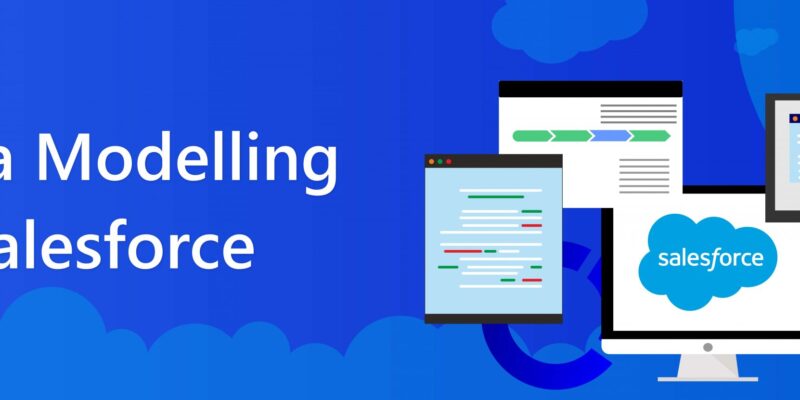
In the dynamic landscape of Salesforce, effective data modeling is a cornerstone for success. Aspiring Salesforce professionals in Delhi are fortunate to be guided by seasoned mentors who unravel the complexities of data modeling in Salesforce classes. These mentors of the Salesforce classes in Delhi emphasize the significance of robust data modeling for businesses to derive meaningful insights, enhance customer experiences, and streamline processes.
In this article, we will explore the essence of data modeling elucidated by Salesforce gurus in Delhi and the ten best practices industry experts advocate for effective data modeling in Salesforce.
Understanding Data Modeling:
Before we dive into the best practices, it’s imperative to comprehend what data modeling entails. In Salesforce, data modeling refers to defining and structuring data relationships within the platform. It involves creating a blueprint that outlines how different data objects connect and interact. A well-crafted data model forms the foundation for building scalable and efficient Salesforce applications.
10 Best Practices for Effective Data Modeling:
Comprehensive Requirement Analysis:
The first and foremost step in effective data modeling is a thorough analysis of business requirements. Industry experts stress the importance of engaging stakeholders to understand their needs and expectations. By clearly grasping business processes and objectives, Salesforce professionals in Delhi can design a data model that aligns seamlessly with organizational goals.
Utilize Standard Objects Whenever Possible:
Salesforce provides a plethora of standard objects that cater to everyday business needs. Experts recommend leveraging these standard objects before creating custom ones. This reduces complexity and ensures compatibility with future updates and features introduced by Salesforce.
Establish Clear Naming Conventions:
Clarity in nomenclature is paramount for a coherent data model. Mentors in Salesforce classes advocate for establishing clear and consistent naming conventions for fields, objects, and relationships. This practice enhances readability, making it easier for administrators and developers to understand the data structure.
Define Relationships Strategically:
Relationships between objects define how data is related and accessed. Industry experts emphasize the strategic definition of relationships, ensuring they reflect real-world connections between different entities. Careful consideration of relationship types, such as master detail and lookup, is vital for a well-crafted data model.
Implement Validation Rules and Data Integrity:
It’s crucial to implement validation rules to maintain data accuracy and reliability. Salesforce mentors stress the importance of incorporating these rules to enforce data integrity, preventing erroneous or inconsistent information entry into the system.
Optimize Field Usage:
The efficient use of fields is a key aspect of effective data modeling. Experts advise against the unnecessary proliferation of fields, encouraging Salesforce professionals to optimize field usage by choosing appropriate data types and limiting the creation of redundant fields.
Consider Record Types and Page Layouts:
Salesforce supports creating record types and page layouts, allowing customized user experiences based on different contexts. In Salesforce classes in Delhi, mentors highlight the significance of considering record types and page layouts to tailor the user interface to specific business needs.
Plan for Scalability:
A well-designed data model should be scalable to accommodate future business growth and evolving requirements. Industry experts stress the importance of flexibly anticipating scalability needs and designing the data model. This involves foreseeing potential changes in data volume and structure.
Document Extensively:
Documenting the data model is often underestimated but is critical for seamless collaboration and knowledge transfer. Salesforce professionals are encouraged to document the data model comprehensively, detailing the purpose of each field, the logic behind relationships, and any specific considerations.
Regularly Review and Refine:
Data modeling is an iterative process that evolves with changing business requirements. Salesforce classes in Delhi emphasize the need for regular reviews and refinements of the data model. This ensures that it remains aligned with the dynamic nature of the business and continues to support organizational objectives.
Conclusion:
In the bustling realm of Salesforce, mastering effective data modeling culminates with a profound understanding of the ten best practices outlined by industry experts in Delhi’s Salesforce classes. These practices serve as the compass, guiding professionals through the intricacies of creating data models that not only meet current business requirements but also possess the flexibility to evolve with the dynamic nature of enterprises.
The emphasis on comprehensive requirement analysis, strategic relationship definition, and meticulous documentation underscores the holistic approach mentors advocate. By instilling best practices such as utilizing standard objects, implementing validation rules, and optimizing field usage, Salesforce professionals in Delhi are empowered to design scalable and efficient data models.
As businesses increasingly rely on Salesforce for digital transformation, the insights gained from these practices are invaluable. The iterative nature of data modeling, coupled with the foresight to plan for scalability, ensures that professionals remain adaptable to evolving organizational needs. In essence, graduates from Salesforce classes in Delhi are not just equipped with technical prowess but are strategic architects shaping the foundation of successful Salesforce implementations globally. The holistic education these classes provide is not merely a training ground; it’s a gateway to becoming agile, insightful, and indispensable contributors to the ever-evolving landscape of Salesforce innovation.










